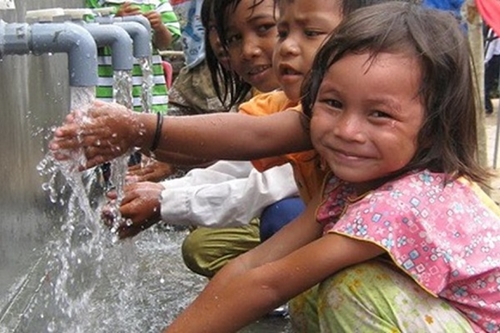January 03, 2022 | 19:30 (GMT+7)
National strategy aims to provide clean water to rural residents by 2030
Deputy Prime Minister Le Van Thanh signed a decision approving the National Rural Clean Water Supply and Sanitation Strategy by 2030, with a vision to 2045.
The strategy aims to ensure rural residents’ access to clean water with reasonable prices, ensure sanitation at households and public places, reduce diseases related to water resources and sanitation, improve local people’s living conditions, and narrow the gap between rural and urban areas.
    |
 |
|
By 2030, around 65 percent of rural population are expected to use clean water. (Photo: tapchimoitruong) |
By 2030, around 65 percent of rural population are expected to use clean water, with at least 60 liters per person per day while 100 percent of rural households, schools and medical facilities will have hygienic latrines.
The Government targets to raise the rate of treated wastewater in rural residential areas to 15 percent over the next decade and to 30 percent by 2045.
By 2045, 100 percent of rural residents are expected to use clean water and hygienic latrines.
The ratio of breeding farms having waste treatment system is expected to reach 75 percent in 2030 and 100 percent in 2045.
To this end, the strategy outlines a number of solutions, including the construction of large-scale clean water supply works in rural areas with connection with those in urban areas to ensure their effective and sustainable operations, and exploiting reservoirs of irrigation works for clean water supply.
The strategy also focuses on applying the model of safe water storage in household, and launching a pilot model of clean water kiosks and ATMs to provide water for direct drinking in residential areas and schools in case of emergency situations.
Source: VNA